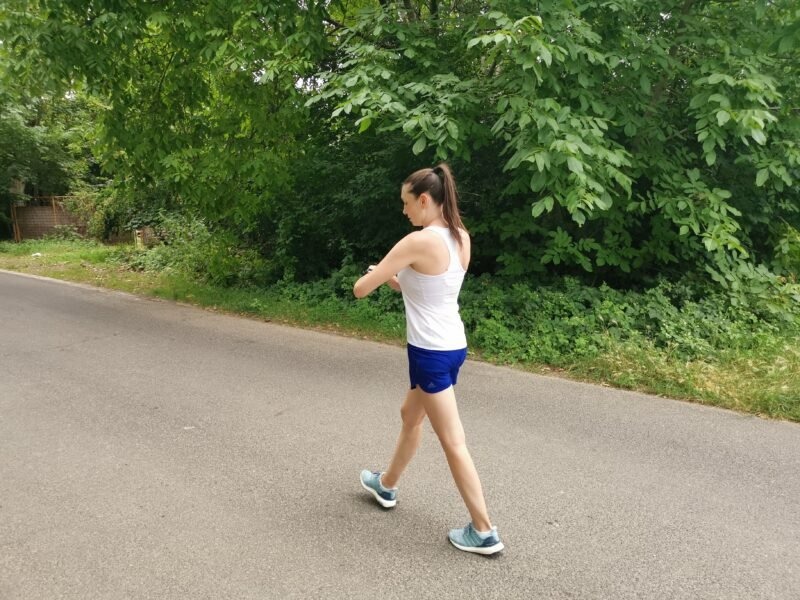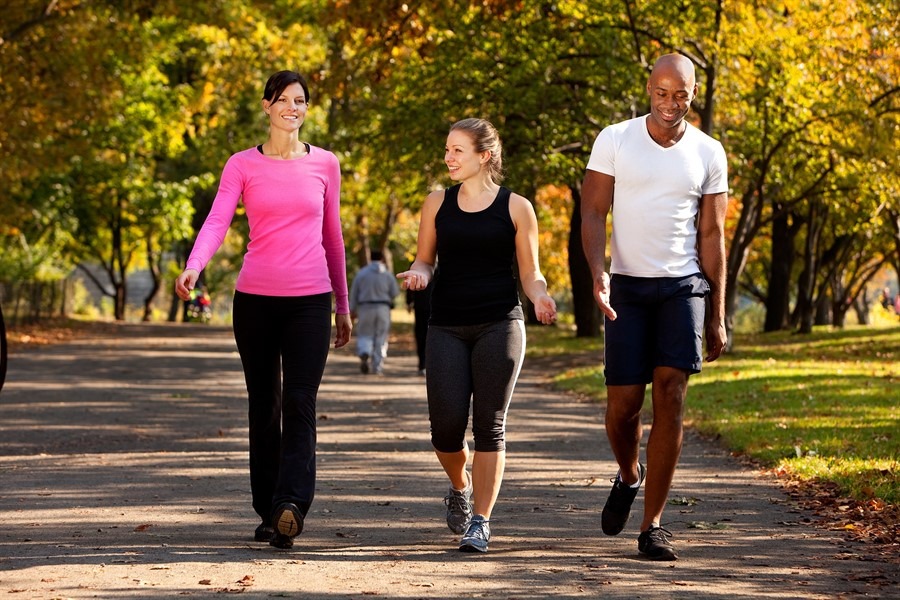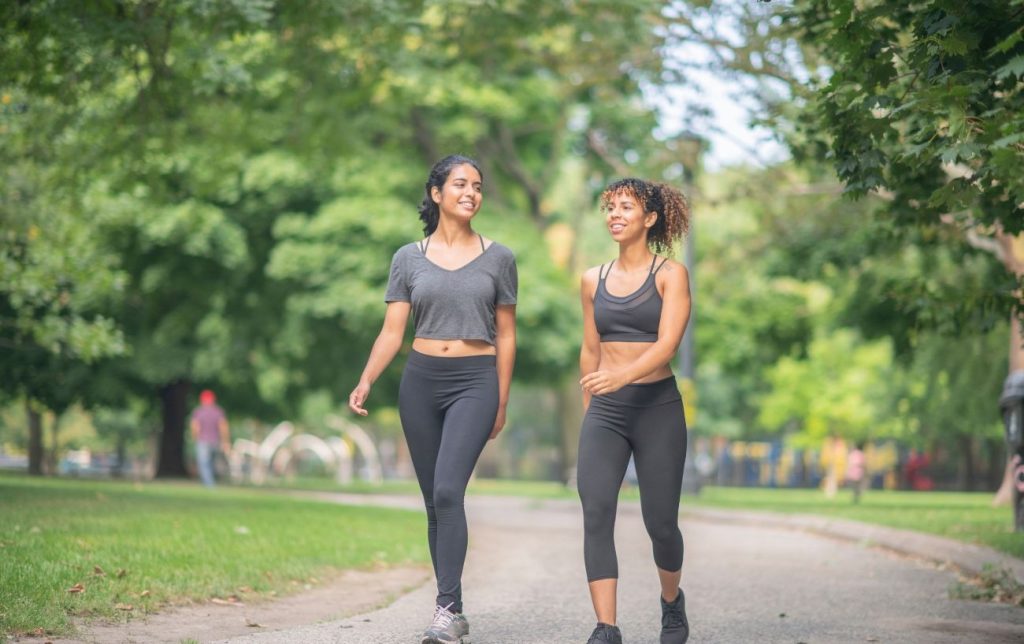Human beings are among some of the few living organisms that can walk with two legs in an upright posture. The ability to walk is something that should not be taken for granted as there are some people who are not born with or have lost that ability. Walking basically is a part of our day to day activities since one normally needs to move from one place to another. Do you know that when you walk 5 kilometers, you engage in an important exercise? Walking is healthy as it is a great exercise to our body.
Generally, there are some distances that you may just need to walk rather than using other means of transport. In some cases also, it might be walking for pleasure or getting yourself in a situation that walking is the only option. This might make you have a desire to know how long it takes to walk 5 kilometers and what factors affect your walking speed.

How Long Does It Take to Walk 5 Kilometers?
The time required to walk 5 kilometers may vary since some people may not be used to walking for that long. Some people are also generally weak. What determines the time taken may be age difference, physical fitness and training experience. The time an adult takes may be different from the time a child strong enough to walk that distance takes. An old aged person may not be able to walk 5 kilometers due to being weak, or others may be able to walk it but may take more time.
For an average person walking at an average pace, it takes sixteen minutes to walk for one mile. This translates to about fifty minutes for a 5 kilometer walk. From this information, we note that it takes fifty minutes for a middle aged person going at an average pace to walk 5 kilometers. This time may vary but from the research done, most people take less than an hour to complete a 5 kilometer walk.
What Factors Affect Your Walking Speed?
Several factors can influence how fast you can walk 5 kilometers:
Age and Physical Fitness
Your age and overall physical condition play a significant role in determining your walking speed. Younger, fitter individuals typically complete a 5 kilometer walk faster than older adults or those with lower fitness levels.

Training Experience
Regular walkers who have built up their endurance can maintain a faster pace throughout their 5 kilometer walk compared to beginners who may need to take breaks or slow down.
Terrain and Weather Conditions
Walking on flat, paved surfaces allows for faster speeds than walking uphill or on uneven terrain. Weather conditions like heat, cold, or wind can also affect your pace during a 5 kilometer walk.
Health Conditions
Any underlying health issues, injuries, or physical limitations can impact how long it takes to walk 5 kilometers.
Essential Preparation Tips for a 5 Kilometer Walk
Proper Footwear
Proper footwear is very essential when you plan to walk 5 kilometers. Good walking shoes must be the ones with flexible soles, soft and low heels. The shoes should be flexible enough to twist and bend while walking, otherwise your feet and shins are likely to struggle with each step. Make sure the shoes fit your feet right and are comfortable.
Good Walking Posture
This is important since it creates easy breathing and also helps you to avoid back pains during your 5 kilometer walk. The right posture is to keep your eyes forward and avoid looking down. Maintain a chin up to help you avoid neck strain.
Appropriate Clothing and Socks
The socks should be comfortable and be the ones which fit snugly. Some socks are made of high-tech fibers to prevent blisters by keeping your foot condition dry. The clothes should also be comfortable and of loose fitting for maximum movement.
Hydration and Nutrition
It is important to carry drinking water since you are likely to get dehydrated during your 5 kilometer walk. You should drink water to avoid being dehydrated along the way.
It is important to keep a balanced diet of at least two different types of food for each meal. Fresh food, for example: fruits, dairy and veggies, are also very important while preparing for the 5 kilometer walk. It is also important to drink a boost bottle like chocolate milk to help recuperation period.
Proper Preparation Exercise
Prepare yourself by taking a fifteen minutes’ walk daily at an easy pace. This will help to build your strength for your 5 kilometer walk, so you need to be consistent.
How to Walk 5 Kilometers Comfortably
There are some pains that one may experience on the way if not properly prepared for your 5 kilometer walk. These pains must be avoided to enable the walk to be easy and of less or, if possible, no strain.

Foot Care and Blister Prevention
Keep your toenails cut short and nice to avoid the possibility of them to rub on your shoes in any way. This helps to avoid losing your toenails which might be painful during your walk 5 kilometers.
Do you always get annoyed with blisters? Don’t get worried about this, just make sure you smear your feet with Vaseline foot cream or Glide before putting on your socks. This will greatly help you to avoid blisters during your 5 kilometer walk and you will be amazed. If by bad luck you get one, clean the affected area with alcohol, using a sterilized pin, prick to drain and then you apply antibiotic cream. Cover it with a sports tape, and you will be good to go!
Maintaining Proper Pace
Start your 5 kilometer walk at a comfortable pace that you can maintain throughout the entire distance. If you’re a beginner, don’t worry about speed – focus on completing the distance first. As your fitness improves, you can gradually increase your walking pace.
Listen to Your Body
Pay attention to your body during your 5 kilometer walk. If you feel excessive fatigue, pain, or discomfort, it’s okay to slow down or take short breaks. The goal is to complete the distance safely and comfortably.
Health Benefits of Walking 5 Kilometers
Walking is important, and if you walk 5 kilometers routinely, you will find yourself putting a smile on your face and being amazed by the benefits you’ll experience. The following are some of the benefits you are likely to experience when you walk 5 kilometers as an exercise.
Sharpens Your Brain
A study that was recently published in Annals of Neurology found that participants aged 55-88 and met the guidelines of the exercise set showed a significantly lower threat of evolving Alzheimer’s disease.
Helps to Strengthen Your Bones
Great news for those who walk 5 kilometers as an exercise is that walking reduces a risk of hip fractures and also offers bone strengthening benefits. This helps to keep you strong and physically fit.
Enhances Blood Circulation
A 5 kilometer walk offers great support for your heart functions. Walking helps in blood circulation by lowering blood pressure, this reduces the risk of suffering from a stroke. This can be achieved by only having a brisk walk for just 30mins a day.
Helps to Raise Your Immunity
Having a 5 kilometer walk daily helps your body system to fend off illnesses better. A regular walk also may help you to maintain a healthy weight that helps reduce the chances of suffering from diseases like type 2 diabetes and cancer.
Improves Blood Glucose Levels
One study published in a journal of diabetes care showed that a short 15 minutes’ walk after a meal is effective at lowering blood sugar levels.
Walking Improves Your Sleep and Reduces Stress
A morning outdoor 5 kilometer walk may help you to sleep faster and sound since exposure to sunlight helps you stay in tune with your normal circadian rhythms. Walking outdoor also helps to put your brain into the state of meditation and this helps to reduce stress.
Walking Speed Guidelines by Fitness Level
Beginner Walkers
If you’re new to walking for exercise, aim to complete your 5 kilometer walk in 55-65 minutes. Focus on consistency rather than speed, and gradually build up your endurance.
Intermediate Walkers
Regular walkers can typically walk 5 kilometers in 45-55 minutes. At this level, you can start incorporating interval training or slight inclines to challenge yourself.
Advanced Walkers
Experienced walkers and fitness enthusiasts can often walk 5 kilometers in 35-45 minutes, maintaining a brisk pace throughout the entire distance.
Safety Tips for Your 5 Kilometer Walk
Since there is no walking technique that guarantees 100% safety, the following tips will help you make the most of your 5 kilometer walk and ensure your safety:
➢ Start gradually: If you’re new to walking longer distances, begin with shorter walks and gradually increase to 5 kilometers.
➢ Choose safe routes: Select well-lit, populated areas for your 5 kilometer walk, especially if walking alone.
➢ Wear visible clothing: If walking during dawn, dusk, or evening, wear bright or reflective clothing.
➢ Inform someone: Let someone know your walking route and expected return time.
➢ Carry identification: Always carry some form of ID during your 5 kilometer walk.
➢ Rest when needed: Allow your body to recover between longer walks, especially when you’re building up to regular 5 kilometer walks.
Conclusion
Walking 5 kilometers is an excellent form of exercise that offers numerous health benefits. With an average completion time of 50 minutes for most people, it’s an achievable goal that can fit into most daily routines. The key to successfully and comfortably completing a 5 kilometer walk lies in proper preparation, including appropriate footwear, hydration, and gradual conditioning.
Remember that everyone’s walking speed is different, and factors like age, fitness level, and terrain can affect how long it takes to walk 5 kilometers. Whether you complete your 5 kilometer walk in 35 minutes or 65 minutes, the important thing is consistency and enjoying the journey.
Start with proper preparation, listen to your body, and gradually build up your endurance. Before you know it, walking 5 kilometers will become a natural and enjoyable part of your fitness routine, providing you with all the wonderful health benefits that regular walking has to offer.
It is not mandatory that you go for long distance walks, but so long as walking 5 kilometers is in your daily routine, you will be able to experience its benefits and improve your overall health and well-being.



